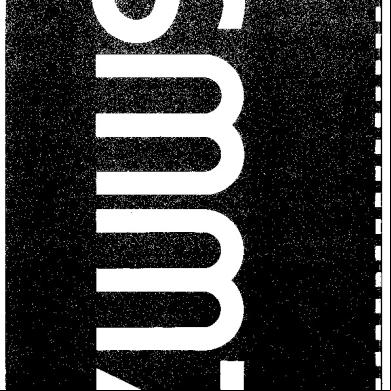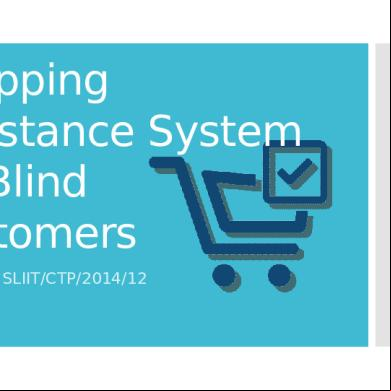Re Mcardle z2p5e
This document was ed by and they confirmed that they have the permission to share it. If you are author or own the copyright of this book, please report to us by using this report form. Report 3i3n4
Overview 26281t
& View Re Mcardle as PDF for free.
More details 6y5l6z
- Words: 323
- Pages: 2
Re McArdle (1951) This case (Re mc cardle [1951] Ch 669) is the archetypal example of a past benefit being unacceptable as Consideration in a Contract. The occupants of a house carried out certain improvements during their tenancy, and were offered payment in recompense by the owner. However, the owner died before doing so, and his representatives refused to honour the promise. The courts ed the owner's representatives, because the tenants had not provided good consideration. Note that in this case the tenants' work was carried out at their own behest, and not at the request of the owner. Had the owner explicitly requested the tenants to do the work, and then offered payment, the court may have been able to use the doctrine of Implicit assumpsit to incorporate the past work into the agreement, and thereby deem it consideration.
Re McArdle (1951) This case is an example of past consideration for a promise or bargain and as such cannot be accepted as good consideration. The basis for this is that any promise made by a party to provide a benefit for the action of another party when that action was performed previous to and outside the promise, cannot be considered to have formed the necessary detriment essential to good consideration. In this particular case, the claimant had carried out improvements to a house voluntarily. Two years later the claimant received a promise to be reimbursed for the costs but for the reasons stated above it was considered a gratutious promise and therefore unenforceable as a contract or bargain. It is important to distinguish this from a detriment incurred by a party in return for the promise of a benefit to be received later. Since the promise was made before the detriment was incurred it is considered an enforceable promise and good consideration since the agreement had already been struck before the detriment was incurred for the receipt of some later benefit. http://www.oddflower.org/gdl/index.php/Consideration
Re McArdle (1951) This case is an example of past consideration for a promise or bargain and as such cannot be accepted as good consideration. The basis for this is that any promise made by a party to provide a benefit for the action of another party when that action was performed previous to and outside the promise, cannot be considered to have formed the necessary detriment essential to good consideration. In this particular case, the claimant had carried out improvements to a house voluntarily. Two years later the claimant received a promise to be reimbursed for the costs but for the reasons stated above it was considered a gratutious promise and therefore unenforceable as a contract or bargain. It is important to distinguish this from a detriment incurred by a party in return for the promise of a benefit to be received later. Since the promise was made before the detriment was incurred it is considered an enforceable promise and good consideration since the agreement had already been struck before the detriment was incurred for the receipt of some later benefit. http://www.oddflower.org/gdl/index.php/Consideration










